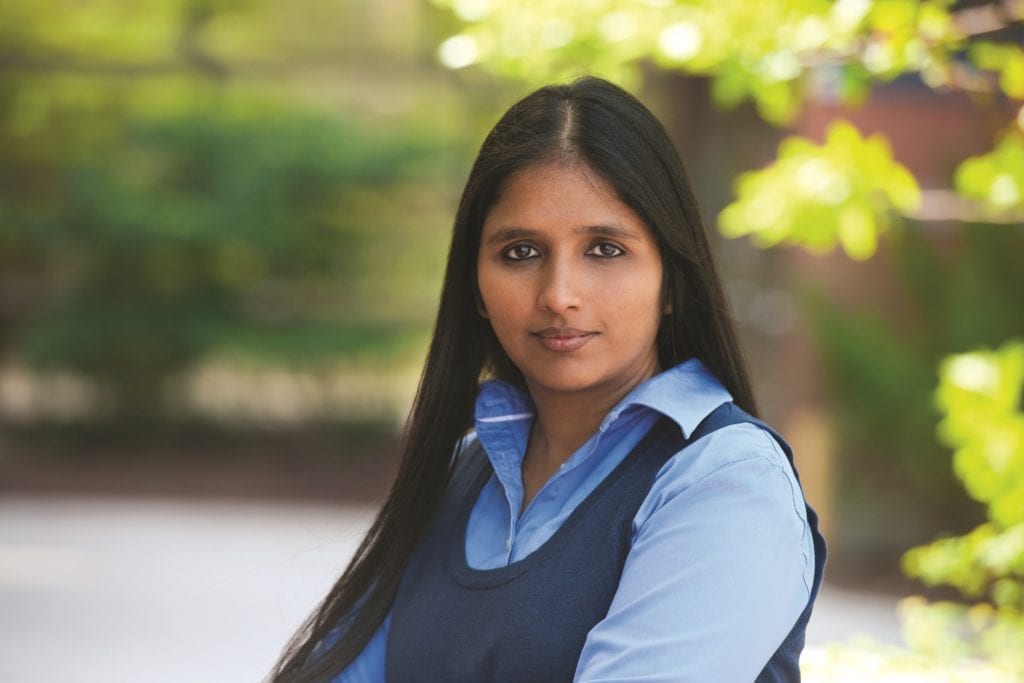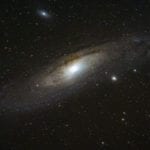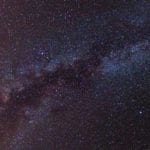When Shohini Ghose was a young girl growing up in India, she wanted to be an astronaut. “The first Indian astronaut went to space when I was a child,” she says, adding “I was immediately inspired.” She also watched Star Trek with her brother every Sunday morning. “This had a huge influence on me.”
Combining this inspiration with the fact that she always excelled at mathematics and physics and never backed down from a challenge, she set her sights on studying the laws that govern the Universe.

For her undergraduate degree, Ghose adventurously moved across the world to Ohio’s Miami University in the United States. She started out with a major in mathematics but soon realized she wanted something more applied, so she took on physics as a second major. During her undergraduate degree she was offered a summer research position with Dr. Perry Rice at Miami University where she studied how atoms interact with a laser using simulations of quantum optics calculations. “It was a big moment of discovery for me,” she says. “It was exciting that I was doing something new that hadn’t been done before. It was my first taste of research and gave me confidence. My supervisor, who is still a mentor to me to this day, encouraged me to go to graduate school.”
Ghose then moved to the University of New Mexico to start her graduate studies. While there she at times noticed some unequal treatment that favoured men over women in the physical sciences.
“The classrooms were dominated by men. Professors would walk into the classroom and greet us with ‘good morning gentlemen.’ The professors wouldn’t ask me questions and I wouldn’t get invited to study groups. I felt alone and doubted whether I should even be there.”
After experiencing an act of outright sexual harassment from someone in the department, she was at a point where she seriously considered quitting. “Before making that decision, I gave myself one more term. Looking back on it, I think I was subconsciously looking for a reason not to quit because I loved physics so much, and that’s what kept me going.”
She then met the professor that would become her PhD mentor, Dr. Ivan Deutsch, who she describes as “amazing.” She realized the importance of good mentors during this time. “You do need mentors,” she says, “if you choose to follow your passions, the scientific challenges in the field are easier to face… it’s the rest you need support for.”
Ghose was very successful during her PhD. Her thesis, entitled Quantum and classical dynamics of atoms in a magneto-optical lattice, focused on how atoms interact with lasers. She found that at the quantum scale, atoms tunnel through barriers as if walking through a wall. Her PhD thesis laid the groundwork for the eventual experimental observations that were used to create the first ever “movie” of atoms exhibiting this behaviour. Her research also had applications to quantum information processing—the field of study that determines how we can use quantum physics to come up with new ways to communicate. “It’s a field that’s a little reminiscent of the teleportation in Star Trek,” Ghose says.
In 2003, Ghose moved to Canada to start a post-doctoral fellowship at the University of Calgary. Only one year later, in 2004, she heard about an opening for an Assistant Professor at Wilfrid Laurier University (WLU) and saw it as her next challenge. “I was sure I wouldn’t get it as I did not have much post-doc experience at that point, but my supervisor encouraged me to apply and I thought it would be good practise for the future.”
She was offered the position and moved to WLU in Waterloo (Ontario, Canada) in 2005 where she continues to work today as a Professor. During her time at WLU, she has continued her work in the field of quantum physics studying topics such as quantum unpredictability—exploring whether atoms have a kind of butterfly effect where small changes cause big effects—and studying applications of quantum physics to quantum computing and teleportation.
Ghose’s work has earned her many prestigious recognitions including the Sera Bangali award (2011) and the Mahatma Gandhi global achiever award (2014). She was named one of only two Canadian TED Fellows in 2014 and awarded the inaugural Kitchener-Waterloo (K-W) Oktoberfest Rogers Women of the Year in Science, Technology, Engineering and Math (STEM) in 2016. Ghose is also an Affiliate Member of the Perimeter Institute for Theoretical Physics, Affiliate Member of the Institute for Quantum Computing, Adjunct Professor at the University of Waterloo, and Member of the Guelph-Waterloo Physics Institute.
While at WLU, Ghose started really reflecting for the first time on her experience as a woman in physics. “I connected with other faculty and started thinking about what it means to be a woman in physics. I reflected on my process and thought that I am just one person—there are many other people with their own experiences. We can look at each person as a data point and collect evidence to accurately analyze the current status and develop evidence-based initiatives to address the issues.”
Ghose started speaking to experts including natural scientists and social scientists about this topic. Her efforts eventually led her to found the Wilfrid Laurier Centre for Women in Science (WinS), which aims “to build a strong community for women in science through research, communication and action.” About the centre, Ghose says, “It’s a chance to build a community for young women in the field so that they feel supported and don’t risk abandoning their passion like I almost did.”
Some of the activities the centre has organized include photo exhibits by WLU graduate student Eden Hennessy about gender issues in the sciences. The first exhibit, entitled #DistractinglySexist, was a play on the #DistractinglySexy hashtag that went viral in 2015 to protest Nobel Prize-winning scientist Tim Hunt’s comments that women working in labs are distracting. The second exhibit, #DistractinglyHonest, showcased the challenges and successes women in science face. Another initiative organized by the centre is called MySTEMStory, which invited physicists around the world to share their stories. Female scientists from each continent in the world have contributed so far. “The success of the centre comes from combining the perspectives of many different groups. It opens up amazing new conversations,” Ghose says.
Ghose has enjoyed tremendous success in research and advocacy, and now supporting women in science is as equally important to her as her love for physics. “Now it’s not just about the research anymore,” she says, “every student in physics I talk to expands my horizons, the same way that seeing the first Indian astronaut go to space did.”
Looking to the future, Ghose is excited to continue her award-winning research in quantum physics, probing the Universe for answers to burning questions. We are hoping teleportation continues to be a theme! About the status of women in physics, she says, “Things are improving. We’re seeing that people are more open to talk about changes. It’s important to start the conversation. Are we changing fast enough? No. But I have hope for the future.”




